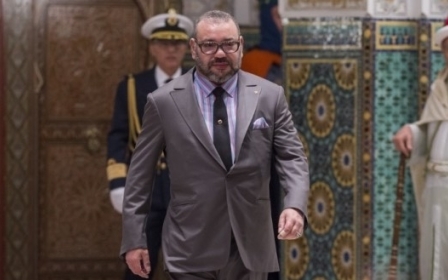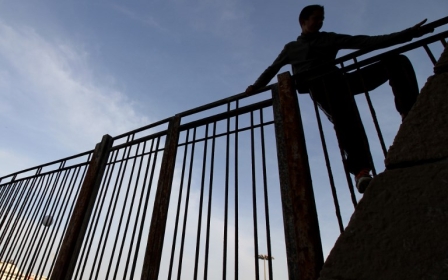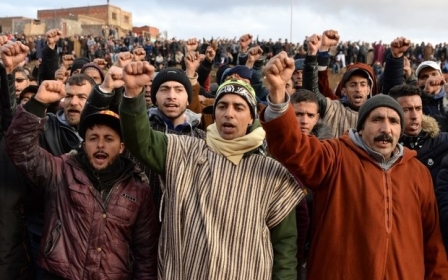Moroccan journalist imprisoned without evidence, says lawyer

A Moroccan journalist known for reporting on some of the kingdom’s most contentious issues will have a court hearing in Casablanca on Thursday over allegations that he raped and harassed female colleagues.
Taoufik Bouachrine, editor of the daily 40,000-circulation national newspaper Akbar al-Youm, was arrested at his offices on 23 February by 40 police officers.
The 49-year-old was imprisoned three days later on the basis that his case was ready for judgment. He has also been charged with human trafficking and attempted rape.
But his lawyers say he is being held arbitrarily and hope that the case will be dropped in Thursday's court hearing.
“There is no concrete, material evidence to support the allegations that has been presented in court,” international law specialist Rodney Dixon QC told Middle East Eye. “That’s why the defence says he should be released.”
All the women alleged to have been raped or assaulted have denied that Bouachrine attacked them and have refused to testify, according to Dixon.
One of the women, Afaf Barnani, has said that a statement attributed to her which accused Bouachrine of sexual assault was falsified by national authorities, he said.
Dixon also said that Bouachrine's lawyers based in Morocco have been put under pressure from authorities to withdraw their defence.
Bouachrine is currently being held in Ain Borja prison in Casablanca. If he is not released after the hearing on Thursday, Dixon said his case could be brought before the UN Working Group on Arbitrary Detention.
'A dangerous job'
In recent years, human rights advocates have documented a steady erosion of press freedom in the kingdom which currently ranks 133 out of 180 on the World Press Freedom Index.
"The kingdom’s authorities use political and economic pressure to deter local independent media outlets from covering highly sensitive subjects," according to Reporters Without Borders (RSF).
Another tactic has been to charge individual journalists with crimes related to their professional or personal lives, something Bouachrine told MEE in a 2015 interview that he had direct experience of.
'You worry about talking to people. It’s become a dangerous job not just for us, but also for our sources'
- Taoufik Bouachrine in 2015
When he tried to buy a house in Rabat in 2007, he was accused of failing to pay taxes. The case was eventually tossed out of court, but only after running on many of Morocco's front pages.
In 2012, Akbar al-Youm published a story, based on documents leaked by confidential sources in the ministry of finance, which showed that the former finance minister, Salaheddine Mezouar, and the national treasurer, Noureddine Bensouda, had authorised salary bonuses for one another.
The story sparked the announcement of an inquiry into the allegations from Minister of Justice Mustapha Ramid – a member of the PJD party that came to power on an anti-corruption platform in 2012.
But Bouachrine told MEE that the investigations only focused on the whistleblowers who had tipped Akbar al-Youm off.
When he refused to give up their identities, Bouachrine said investigators went through the paper's phone records and found the employees who were charged with "divulging professional secrets" and lost their jobs.
The chain of events, said Bouachrine, had a chilling effect on the newspaper's coverage.
“Many people with whom we have been working don’t take our calls any more,” he said. “You worry about talking to people. It’s become a dangerous job not just for us, but also for our sources.”
In July 2016, the Moroccan parliament approved a revised press code that abolished prison sentences for press offences, but RSF says the penal code "still effectively allows journalists to be prosecuted and jailed for their work".
The Moroccan government spokesman, Mustapha Khalfi, and the Moroccan embassy in London have been contacted for comment on Bouachrine's case.
New MEE newsletter: Jerusalem Dispatch
Sign up to get the latest insights and analysis on Israel-Palestine, alongside Turkey Unpacked and other MEE newsletters
Middle East Eye delivers independent and unrivalled coverage and analysis of the Middle East, North Africa and beyond. To learn more about republishing this content and the associated fees, please fill out this form. More about MEE can be found here.




